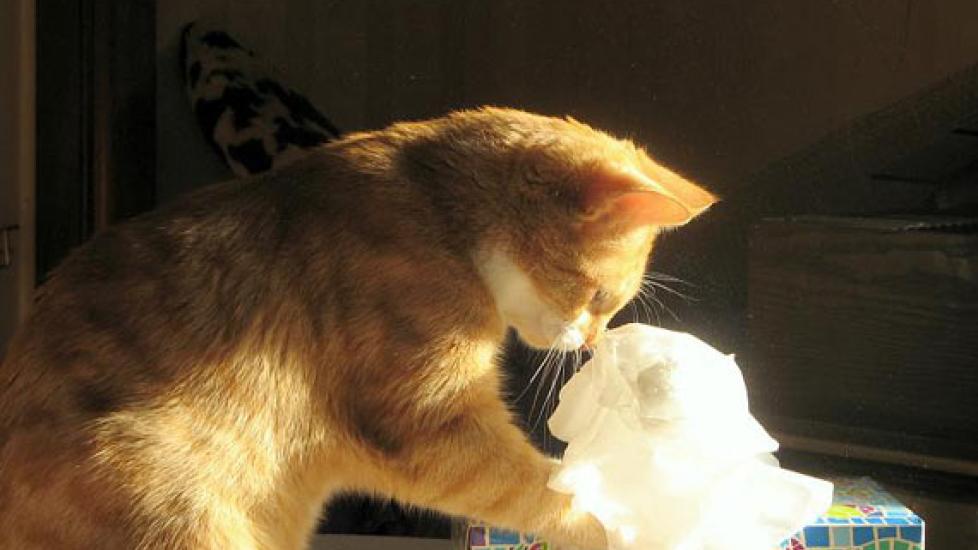Relief for Cat Allergy Sufferers
Are any of you cat owners out there allergic to your pets? If so, there may be some good news on the horizon for you.
But first, I have to say that I’ve always been amazed by people who have cats in spite of their allergies. My college roommate was one. Kathy loved cats, but also had asthma that would invariably flare-up terribly at the merest suggestion of a cat in the room. I spent many tense moments with her waiting to see if her rescue inhaler was going to kick in or if I was going to have to dial 911.
Do you think this deterred her from bringing an adorable young cat into her new home after we graduated and went our separate ways? Of course not.
Now, I love cats, but I honestly don’t think I’d seek them out if they threatened my ability to breathe. Unfortunately, Kathy eventually came to the same conclusion, but thankfully was able to find her cat a wonderful home where she could still visit from time to time, rescue inhaler in hand.
OK, back to what’s new. Traditionally, cat allergy suffers have had only three options:
1. Decrease their exposure to cats and/or the allergens they produce, which isn’t always as easy as not having a cat in your own home (see below)
2. Make use of symptomatic treatments (e.g., anti-histamines)
3. Go through a desensitization procedure involving numerous allergy shots given over the course of years
In many cases, allergy immunotherapy (as this last option is called) is not ideal because of the time commitment required and the fact that some people (particularly those with asthma) can have potentially life-threatening side effects from being injected with even tiny doses of their triggers.
Scientists at McMaster University in Hamilton, Ontario are working on a better option — a vaccine that consists of synthetic versions of parts of the protein that causes reactions in most cat-allergic people. Because entire proteins are not injected into the body, the risks of serious adverse reactions are much lower than with traditional allergy shots.
In early studies, the vaccine decreased symptoms in people who are allergic to cats by about 40 percent. It looks like just a few injections might provide relief that lasts for a year, or even longer; researchers are still trying to figure out what the ideal dose and schedule for the injections might be.
This new treatment option, which goes by the name ToleroMune Cat, is not yet commercially available, but keep your eyes open for more news about it in the future.
On a related note, the Canadian government is considering banning cats from the cabins of airplanes to protect the health of passengers who may be allergic to them. A recent poll on this topic revealed that 52 percent of respondents agreed with the statement, "People have the right not to breathe cat dander, so cats shouldn't be allowed in airplane cabins," while 48 percent sided with, "Cat owners have the right to bring their cats with them in airplane cabins." What do you think?

Dr. Jennifer Coates
Pic of the day: You want one of these things? by katherine.a
Last reviewed on October 7, 2015
